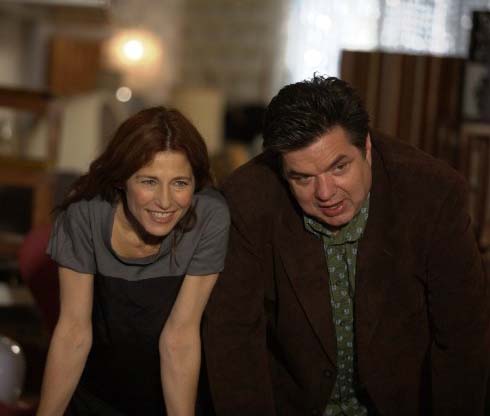Tribeca Report: Please Give

The distorted, rambling pursuit of fulfillment among bourgeois malcontents is a popular conceit in New York movies. In Nicole Holofcener’s Please Give, which opens today, the city’s disparate landscape plays host to characters whose particular strain of Village neuroses shreds sentimentality: a grandmother blows out her birthday candles amidst a discussion of her impending death and plans for the subsequent remodeling of her apartment; a teenage daughter learns about her father’s infidelity as she receives a botched facial from his mistress. Throughout the film, Holofcener’s unnamed family occupies a universe dominated by money, age, and perverse propriety.
Kate (Catherine Keener) and Alex’s (Oliver Platt) marriage is more partnership and parenting than passion. Together, they own an upscale vintage furniture store full of dining tables, shag tapestries, priceless vases, and matching bookshelves purchased from the homes of the recently deceased-usually, the forgotten elderly. In one scene, Kate’s mouth drops in a vintage Keener mix of distress and awe as she visits the jackpot apartment of a dead woman, the contents of which a suburbanite son is selling with expedient and crude haste. But the spiraling cycle of over-marked scavenged pieces begins to chip away at Kate’s magnanimous character. Her daughter’s adolescent angst and her husband’s breezy nonchalance press Kate to commit naive and deluded acts of charity: “Your guilt is warping you,” her husband informs her.
Combined with the budding–and strangely intimate relationship–she shares with her neighbors, Kate’s motives like Holofcener’s writing, are at times are a transparent depiction of the thinly-veiled narcissism behind the urban upper middle-class: entitlement to guilt, voyeurism, and vanity volunteerism.






